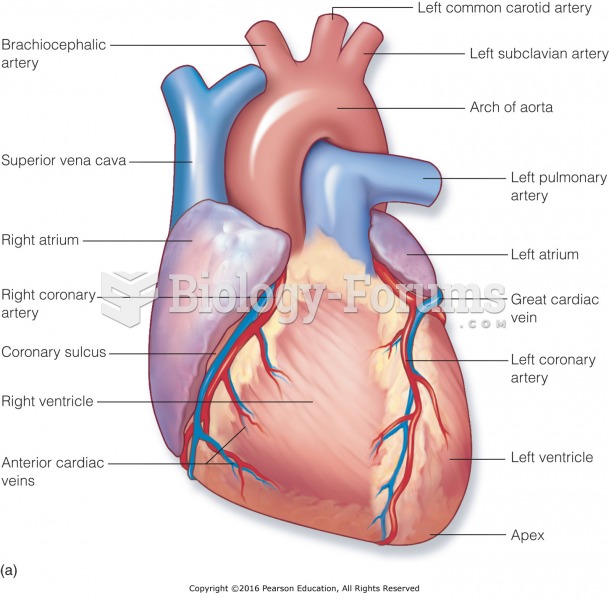This topic contains a solution. Click here to go to the answer
|
|
|
Did you know?
Eat fiber! A diet high in fiber can help lower cholesterol levels by as much as 10%.
Did you know?
In 2012, nearly 24 milliion Americans, aged 12 and older, had abused an illicit drug, according to the National Institute on Drug Abuse (NIDA).
Did you know?
There are 20 feet of blood vessels in each square inch of human skin.
Did you know?
There are over 65,000 known species of protozoa. About 10,000 species are parasitic.
Did you know?
More than 34,000 trademarked medication names and more than 10,000 generic medication names are in use in the United States.







